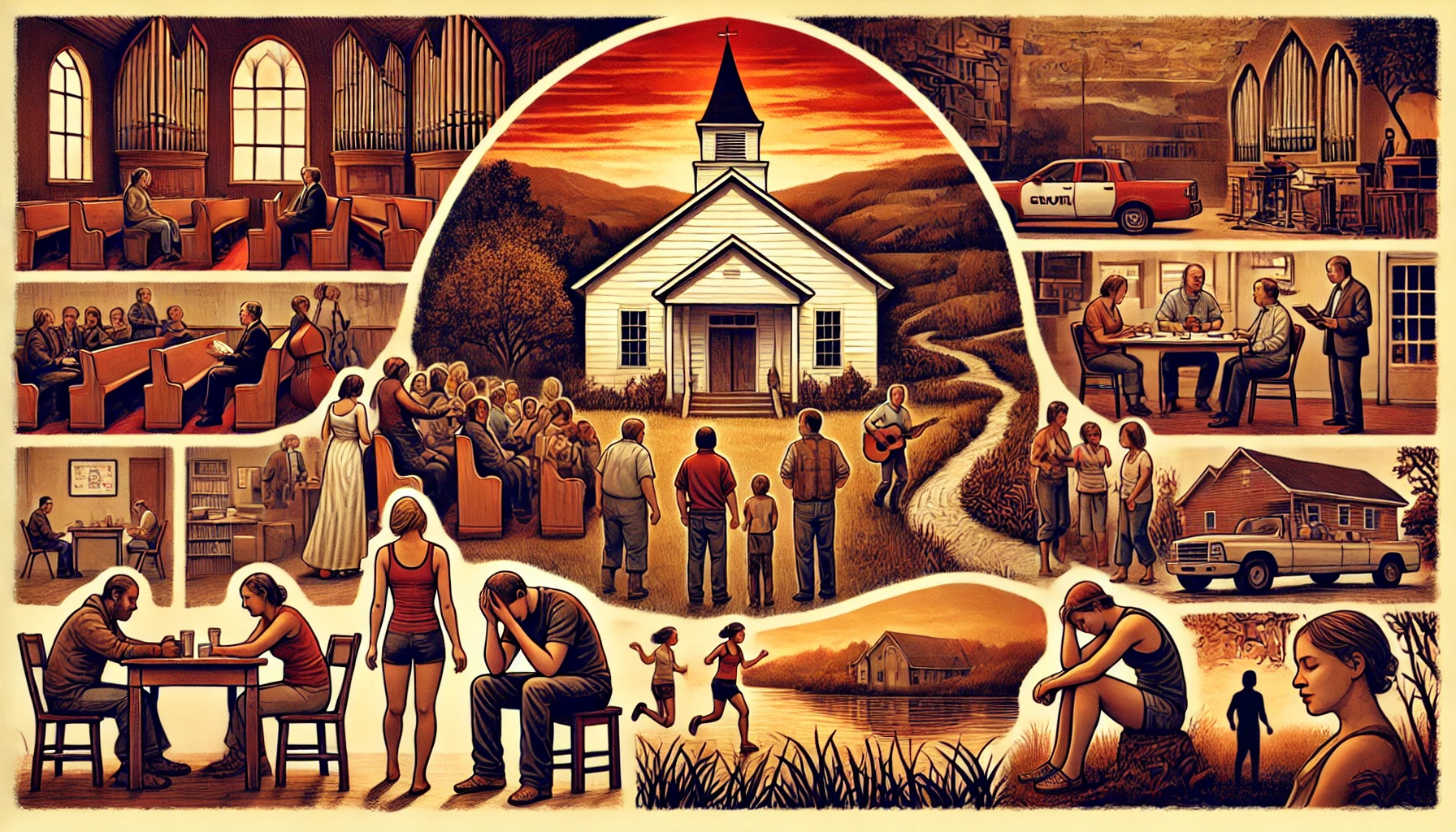The Bible Belt, a region known for its deep-rooted Christian values, spans several Southern and Midwestern states in the U.S. Here, faith is more than a belief—it’s a way of life. For residents, coping with life’s challenges often revolves around the pillars of faith, family, and resilience. But how do people living in biblebelt cope? Let’s explore.
Understanding the Bible Belt
Geographic and Cultural Boundaries
The Bible Belt stretches across states like Alabama, Mississippi, Tennessee, and more, where religious influence is deeply embedded in the culture. Known for its traditional values and high church attendance, the region’s identity is intertwined with faith.
Influence of Religion on Daily Life
Christianity, particularly Protestantism, dominates the Bible Belt. Sunday services, Bible studies, and community gatherings are more than religious activities—they’re integral to the rhythm of life.
Read Also: How Much To Trade In An Old Chain? Find Out Today!
Faith as a Cornerstone
Spiritual Practices and Coping
Prayer and meditation offer solace during tough times. Whether seeking divine intervention or a moment of peace, these practices are central to managing stress.
Role of Churches
Churches act as community anchors, offering everything from spiritual guidance to food drives. Pastors often double as counselors, providing a listening ear for those in need.
Faith During Crises
In times of natural disasters like tornadoes or hurricanes, many turn to religion for hope and strength. Stories of people rebuilding their lives with faith as their foundation are commonplace.
Family as a Pillar of Support
Family-Centered Culture
Family ties are strong in the Bible Belt, with traditional values emphasizing respect, loyalty, and togetherness. Extended families often live close by, creating a built-in support network.
Family Gatherings and Bonding
Religious holidays like Christmas and Easter bring families together, blending spiritual devotion with cherished traditions.
Raising Resilient Children
Parents focus on instilling strong moral values, often with the help of their church community. Children grow up with a sense of accountability and compassion.
Read Also: How Much To Trade In An Old Chain? Find Out Today!
Resilience Built Through Challenges
Economic Challenges
Despite financial struggles, many rely on community support and faith-based initiatives to get by. Churches and charities often step in to fill gaps in government aid.
Natural Disasters and Recovery
Tornadoes and hurricanes are frequent challenges, but resilience shines through as communities unite to rebuild.
Social Pressures
Balancing traditional values with modern societal changes can be tough, but open dialogues within families and communities help navigate these challenges.
The Role of Community
Church as a Social Hub
Churches host social events, support groups, and charitable initiatives, making them hubs of activity and connection.
Volunteerism and Charity
Whether it’s cooking for a neighbor or organizing a fundraiser, acts of kindness are deeply ingrained in the Bible Belt culture.
Modern Challenges
Navigating Changing Beliefs
Younger generations may challenge traditional views, leading to a mix of tension and growth as families adapt.
Mental Health Awareness
While seeking professional help was once stigmatized, faith-based counseling is bridging the gap, promoting a holistic approach to well-being.
Conclusion
Wondering how do people living in biblebelt cope? Faith, family, and resilience are more than words in the Bible Belt—they’re the essence of life. These pillars create a robust support system that helps residents navigate everything from personal struggles to regional challenges.
Read Also: How Much To Trade In An Old Chain? Find Out Today!
FAQs
1. What defines the Bible Belt culture?
The Bible Belt culture is marked by deep religious roots, traditional values, and strong community ties.
2. How does faith help during crises in the Bible Belt?
Faith provides hope and a sense of purpose, guiding individuals through natural disasters, financial struggles, and personal hardships.
3. Why is family so important in this region?
Family is seen as a cornerstone of stability, offering emotional and practical support through life’s ups and downs.
4. What role does the community play in coping?
Communities, often centered around churches, offer resources, companionship, and a safety net during tough times.
5. How are modern challenges affecting Bible Belt traditions?
Modern challenges like secularization and mental health awareness are reshaping traditions, creating opportunities for growth while preserving core values.




